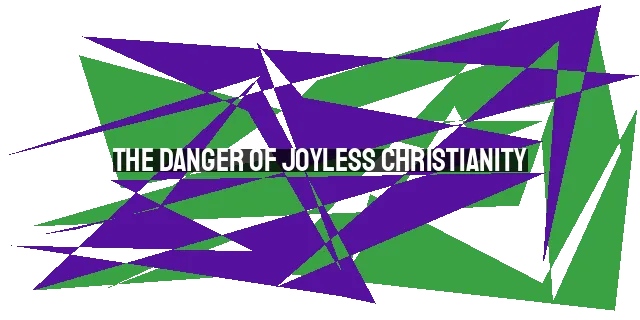Origins of the Papacy: Historical and Biblical Exploration
The Origins of the Papacy: A Historical and Biblical Exploration
The papacy is one of the most significant and controversial institutions in the Christian faith. The pope, as the head of the Roman Catholic Church, wields immense power and authority over millions of believers worldwide, making him one of the most influential religious leaders in the world. But where did the papacy come from? What is its historical and biblical basis? In this article, we will explore the origins of the papacy, from its early beginnings to its current form, and examine the biblical evidence for the papacy's claims to power.
Early Beginnings of the Papacy
The origins of the papacy can be traced back to the apostle Peter, whom Catholics believe was the first bishop of Rome and the first pope. According to Catholic tradition, Jesus appointed Peter as the leader of his disciples, giving him the keys to the kingdom of heaven and the power to bind and loose sins (Matthew 16:18-19). Catholics believe that this passage gives Peter the authority to act as the head of the church and to pass on his authority to his successors, the bishops of Rome.
However, the historical evidence for Peter's bishopric of Rome is scant. The Bible does not mention Peter ever traveling to Rome, and the first historical record of a bishop of Rome dates back to the mid-second century. It is possible that Peter did travel to Rome and establish a community of believers there, but there is no conclusive evidence to support this claim.
What is more likely is that the bishopric of Rome developed gradually over time, as the Christian community in Rome grew and exerted more influence within the wider church. By the end of the second century, the bishop of Rome had emerged as one of the most prominent leaders in the church, and his authority was recognized throughout the Christian world.
The Rise of the Papacy
The papacy as we know it today began to take shape in the fourth century, under the leadership of Pope Damasus I. Damasus was the first bishop of Rome to claim the title of "pope," which means "father" in Latin. He also asserted the primacy of the bishop of Rome over the other bishops in the church, claiming that he was the successor of Peter and the head of the apostolic see.
This claim to primacy was not universally accepted, however. The bishop of Constantinople, who had been elevated to the status of "patriarch" by the emperor Constantine, also claimed primacy over the other bishops in the church. This led to a long-standing dispute between the bishop of Rome and the bishop of Constantinople, known as the "papal schism."
The papacy continued to grow in power and influence throughout the Middle Ages. Popes like Gregory the Great and Innocent III asserted their authority over secular rulers and shaped the course of European history. The papacy also developed a complex system of canon law, which governed the life of the church and regulated the behavior of its members.
Biblical Evidence for the Papacy
So, is there any biblical evidence to support the papacy's claims to power? Catholics point to several passages in the Bible that they believe support the primacy of the bishop of Rome.
Matthew 16:18-19
The most famous of these passages is Matthew 16:18-19, in which Jesus tells Peter, "You are Peter, and on this rock I will build my church, and the gates of Hades will not prevail against it. I will give you the keys of the kingdom of heaven, and whatever you bind on earth will be bound in heaven, and whatever you loose on earth will be loosed in heaven."
Catholics interpret this passage as a reference to Peter's role as the leader of the church and the holder of the keys to the kingdom of heaven. They believe that Peter passed on this authority to his successors, the bishops of Rome, who continue to exercise it to this day.
However, there are several problems with this interpretation. First, the Greek word for "Peter" (petros) means "a piece of rock," while the Greek word for "rock" (petra) means "a large mass of rock." Some scholars believe that Jesus was referring not to Peter himself, but to the confession of faith that Peter had just made: "You are the Messiah, the Son of the living God" (Matthew 16:16). This interpretation would suggest that it is not Peter, but the confession of faith in Jesus as the Son of God, that is the rock on which the church is built.
Second, even if we accept that Jesus was referring to Peter himself as the rock, it is not clear that he intended to establish a papacy or to grant Peter and his successors universal jurisdiction over the church. The keys to the kingdom of heaven may simply refer to the authority to preach the gospel and to baptize, while the power to bind and loose may refer to the authority to forgive or retain sins within the community of believers.
John 21:15-19
Another passage that Catholics point to in support of the papacy is John 21:15-19, in which Jesus tells Peter to "feed my lambs" and "tend my sheep." Catholics interpret this passage as a commissioning of Peter as the shepherd of the church, with the responsibility to care for and guide the flock of Christ.
However, this passage does not necessarily support the papacy's claim to universal jurisdiction over the church. Jesus is speaking specifically to Peter, not to all the apostles or to their successors, and his commissioning of Peter may be seen as a recognition of his unique role as a leader among the apostles, rather than a grant of universal authority over the church.
Acts 15:1-35
A third passage that Catholics sometimes cite in support of the papacy is Acts 15:1-35, which describes the council of Jerusalem. At this council, the apostles and elders of the church debate whether Gentile converts to Christianity should be required to observe the Jewish law. Peter speaks first and declares that God has shown him that Gentiles should not be burdened with the law. His opinion carries weight with the other apostles and elders, and they ultimately decide to exempt Gentiles from the law.
Catholics interpret this passage as an example of Peter exercising his authority over the other apostles and elders. They believe that this passage demonstrates the primacy of the bishop of Rome and his role as the final arbiter of doctrinal disputes within the church.
However, this interpretation is problematic for several reasons. First, there is no indication in the text that Peter was speaking as the bishop of Rome or that he was exercising any kind of universal authority over the church. He is simply one of several apostles and elders who are debating the issue.
Second, the decision of the council is not based solely on Peter's opinion, but on the testimony of other witnesses and the guidance of the Holy Spirit. The council as a whole makes the decision, not Peter alone.
The Papacy Today
The papacy has undergone many changes over the centuries, and it continues to evolve to this day. The current pope, Francis, has been a vocal advocate for social justice and environmental issues, and he has sought to reform the church's internal structures and practices.
However, the papacy remains a controversial institution, with many Christians questioning its claims to power and authority. Protestants, in particular, reject the papacy as an unbiblical and unnecessary addition to the faith, arguing that all believers have direct access to God through Christ and do not need a human intermediary.
Conclusion
The origins of the papacy are complex and multifaceted, and they are still a topic of debate and controversy today. While Catholics point to several biblical passages in support of the papacy's claims to power, these passages are far from conclusive, and there are many other factors that have contributed to the growth and development of the papacy over the centuries.
Ultimately, the question of the papacy's legitimacy and authority is a matter of faith and interpretation. Christians must prayerfully consider the evidence and seek the guidance of the Holy Spirit as they discern the truth of the matter.



POST COMMENT
For post a new comment. You need to login first. Login
COMMENTS(0)
No Comment yet. Be the first :)